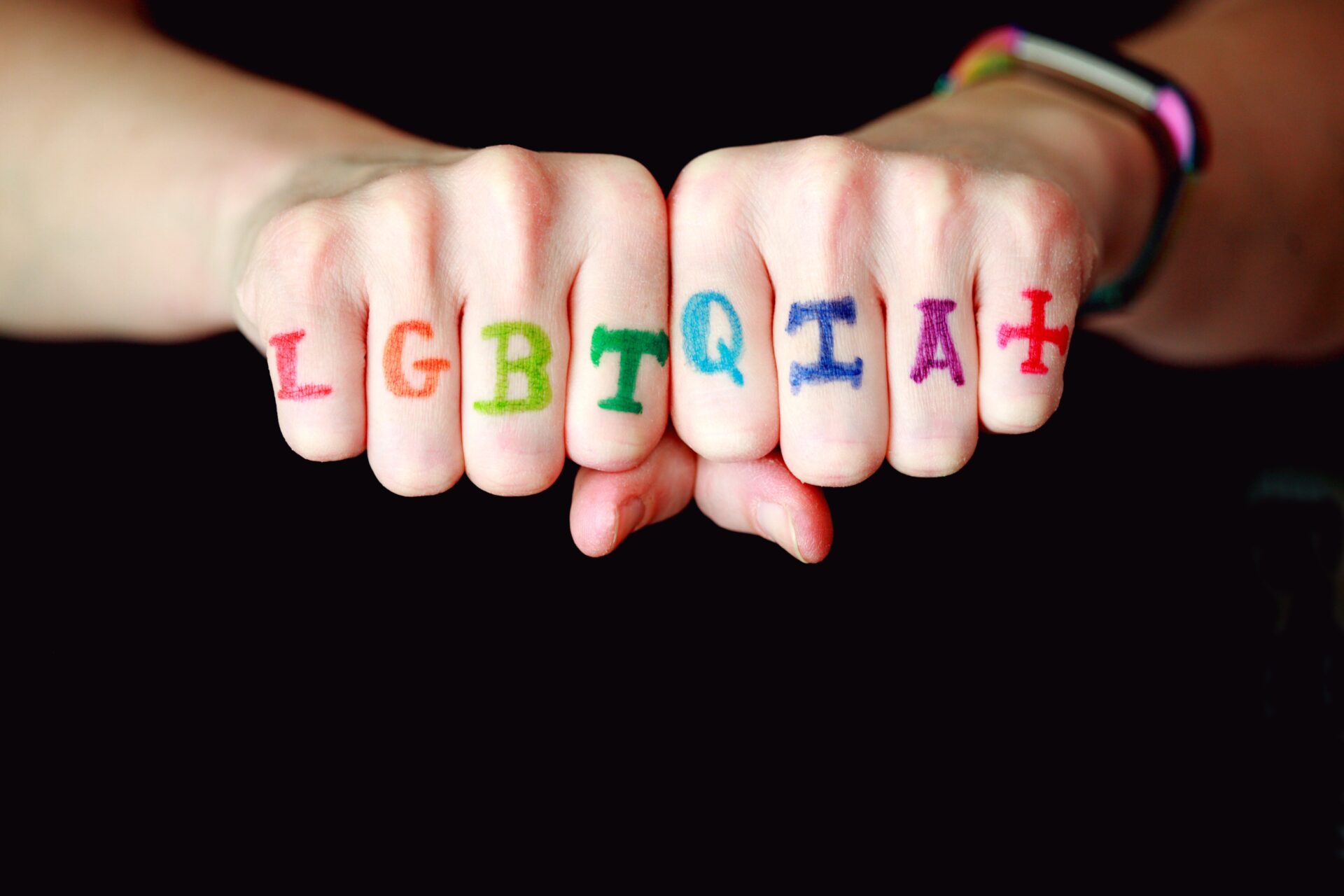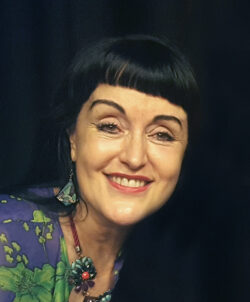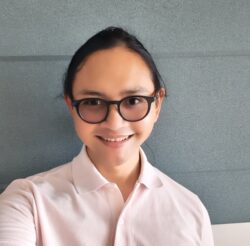
Becoming an Ally: interview with Budi Sudarto and Dr Maria Pallotta-Chiarolli
Over the last few months, UNE students and staff have been taking part in a workshop series through the UNE Allyship Network. Informed from a survey staff and students completed in 2021, the workshops aim to increase LGBTQIA+ inclusive practice, and raise awareness of the dynamics that exist between different intersections of our community on and off-campus. We recently sat down with the training hosts, Budi Sudarto and Dr Maria Pallotta-Chiarolli to learn more about their experiences in building an ally network at UNE.
Could you tell us a little bit about the survey that kick-started the workshop series?
Maria: We surveyed the UNE community for two reasons. Firstly, we wanted to find out what staff, students, and alumni, both on and off-campus, want in terms of LGBTQIA+, multicultural, and multi-faith intersectional needs for its people. The survey also helped us tailor the training uniquely to UNE. Most of the responses have been positive, but also concerning – and that’s okay because now we know what to address.
Based on the survey results, what are some of the key areas the allyship network should address?
Budi: As much as I hate policies and procedures, I’m also a systems person. The priority for the UNE Allyship Network is to ensure there are enough policies and procedures around LGBTQIA+ inclusion here at UNE. Inclusion is making sure people are aware that LGBTQIA+ people exist as part of the UNE family, their rights are protected, and there are very clear systems in place for people to report incidents of harassment or discrimination regardless of where it is coming from. We should note that discrimination can occur in different ways. It can be verbal, it can be non-verbal, it can be overt, and it can be very subtle. But for some, it’s not clear what to do when this happens. This is what we hope to change through the workshops and by raising awareness of these issues within the community. You can’t expect changes to happen just from people’s goodwill. It needs to be supported by the institution and cemented in its policies.
What are some of the inclusion strategies that have added the most value to the experiences of LGBTQIA+ students and staff at other universities you have worked with?
Maria: Inclusion strategies need to be integrated at a systemic level. Before people have enrolled at a university, they should be informed of the policies surrounding LGBTQIA+ or other forms of discrimination and know where they can find support. Every lecturer and student should be assured that the curriculum will be inclusive. It’s also important that the culture of the university represents inclusivity. So, what’s visible at UNE, both online and offline, that celebrates inclusivity? The final strategy we’ve become aware of is the importance of a regional university to its neighbouring town. The university has the power to promote shifts in its local community. So how does UNE centre itself in the broader community?
The next session in the workshop series discusses practical ways someone can be an ally. What is the role of an ally and when should they step back?
Maria: As someone who is an ally, straight identifying, and an academic – l know power, and I know the misuse of power. We have seen situations (which I’ll discuss in the training) where allies take over and people with lived experience walk away – which I find really cringeworthy. The Ally Network is about making everyone feel comfortable. It’s about stepping up, but also stepping back and getting out of the way. It’s about learning practical strategies of how to do the work and understanding what to do if you make a mistake. If something is too difficult for the person who is experiencing this every day, then the ally needs to get permission and step up.
It’s about learning practical strategies of how to do the work and understanding what to do if you make a mistake.
Budi: It’s knowing what to do when being invited to step up and then knowing when to step back as well. An ally is not just “straight people doing a bunch of stuff for the LGBTQIA+ community” but it’s about the community doing stuff for each other. So if there’s an identity in the mix we are not familiar with, instead of pulling back and saying “well that’s not relevant to me so I don’t want to deal with it”, or “I don’t have to deal with sexism because I don’t experience it”, or “I don’t have to deal with faith because I’m an atheist”, or “I don’t have to deal with a disability because I’m non-disabled”… well that’s not allyship. In my previous work, I’ve been invited to talk to LGBTQIA+ refugees and asylum seekers because there were no leaders from that community back then. But now we have an organisation that specialises in that, so when I receive requests, I can handball it to them because they have the lived experiences and the knowledge. So, I’ll give them the platform and I’ll step in if they want me to, but I’m not going to take the money for it. Then we have allies from the outside who come in to support the community. They’re here to correct misgendering, correct homophobia, transphobia, and other forms of discrimination so LGBTQIA+ people don’t have to do the work ourselves all the time. That’s supporting each other from within the community.
Maria: I always suggest following the ‘Triple-A’ approach when you make a mistake as an ally. Acknowledge it. Apologise. Take action. One of the things I’m loving about working with UNE is that with so many online students lots of people are feeling confident and powerful enough to go into their local community and have a voice. So, this is something that I think UNE may not even be able to see, which is the work that is happening as people come offline and go into their local communities.
What’s next for your workshops at UNE?
Budi: We are going to run another lot of sessions from the 21st of June until the 23rd of June, and that’s for people who attended session one and session two who want to be an ally. The training is going to be a few hours long where we’ll have a brainstorming session on what is allyship, what are your roles as an ally, your responsibilities, when you need to step in, and when you need to step back. Also, from this training what are the top priorities that your specific group wants to focus on.
Maria: I’d like to let people know, that as part of the survey and research component, I will be available for a day or two if anyone would like to do a confidential one-on-one interview about their experiences and about what they’d like to see change at UNE. That can happen via zoom, phone or while I’m there in Armidale.
Thank you, Budi and Maria, for taking the time to speak with us today! Your combined experience and dedication to raising awareness of LGBTQIA+ inclusion is beyond impressive, and we are so thankful that our community can benefit from your insight and expertise.
In this blog
 Maria is an academic, author, activist, and ally who has been contributing to the fields of gender, sexual, family, and social diversity since the ’90s.
Maria is an academic, author, activist, and ally who has been contributing to the fields of gender, sexual, family, and social diversity since the ’90s.
 Budi is a director, trainer, and research consultant and has been an active member of Melbourne’s lesbian, gay, bisexual, trans, intersex, and queer (LGBTIQ) community since their arrival to Australia in 1998.
Budi is a director, trainer, and research consultant and has been an active member of Melbourne’s lesbian, gay, bisexual, trans, intersex, and queer (LGBTIQ) community since their arrival to Australia in 1998.
The UNE Allyship Network will be open to everyone, regardless of their sexual orientation, sex characteristics, or gender identity, who supports LGBTQIA+ inclusion. If you have any questions, suggestions, or ideas, you can email the team at accessinclusion@une.edu.au or ring reception on 02 6773 2897.
You’re never alone at UNE!
The team at Advocacy and Welfare offers confidential support to students! Contact them here.
Student Success also has confidential counseling for students, you can find them here.
Lifeline is also a 24/7 hotline and you can call them on 13 11 14


